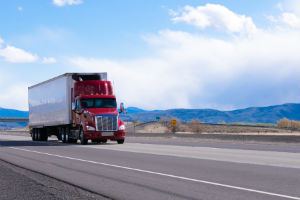How a Third Party Might Be Liable for a Truck Crash Involving an Overloaded Trailer
Posted on behalf of RizkLaw on Aug 21, 2019 in Auto Accident
 Overweight trucks traveling on America’s roadways are one of the many threats to those in passenger vehicles. Sometimes it is the drivers and their employers who ignore regulations on properly loading cargo, and sometimes the third parties that loaded the cargo are to blame.
Overweight trucks traveling on America’s roadways are one of the many threats to those in passenger vehicles. Sometimes it is the drivers and their employers who ignore regulations on properly loading cargo, and sometimes the third parties that loaded the cargo are to blame.
The Portland truck accident attorneys at Rizk Law are dedicated to holding negligent truck companies and third parties responsible for the harm they cause to those in passenger vehicles. If you were injured in a truck crash that may have been caused by an overloaded trailer, contact us to discuss if you may be eligible to pursue compensation.
Federal and State Maximum Weight and Cargo Laws
The Federal Motor Carrier Safety Administration limits commercial trucks to a maximum weight of 80,000 pounds. These vehicles are not designed to carry more weight than that. This weight limit includes the weight of the truck as well as the cargo.
Oregon has the same gross weight limit, but the state does allow commercial vehicles to carry up to 105,500 pounds if the truck has an extended weight permit.
Single axle vehicles are limited to 20,000 pounds while tandem axle vehicles are limited to 34,000 pounds. However, there are certain exceptions. For example, a garbage truck with a single rear axle that has a self-compactor has a limit of 22,000 pounds when it contains garbage or refuse.
Federal law also requires that cargo be properly secured:
- Cargo must be distributed appropriately
- Cargo must be properly secured so that it does not become loose, unfastened, opened or released while the vehicle is in operation
- Cargo cannot obstruct a driver’s view
- Rolling cargo must be restrained
- Trucks must be checked for compliance before getting on the road
- Cargo must be inspected within the first 50 miles and adjusted as needed
- Vehicles with heavy loads must meet the requirements for a Special Purpose Vehicle
- Trucking companies must provide adequate training about federal regulations on properly securing loads
Dangers of Overloaded Trucks
Overloaded trucks are dangerous for other motorists for a variety of reasons.
Excessive Wear and Tear on the Truck
Overloaded trucks have to work harder to get the job done. To compensate for the extra weight, the truck driver will have to brake harder to slow the vehicle down faster. Over time, overloading a big rig may lead to excessive wear and tear on tires, causing a blowout, brake failure and other mechanical failures.
Overloaded Trucks are Harder to Drive Safely
Overloaded vehicles have reduced performance and are more difficult to drive. The extra weight also affects the center of gravity and may contribute to a rollover due to the heavy load.
Heavier vehicles require more time to brake, and a driver may not realize this in time to stop safely or soon enough. Loose cargo can also fall out of the back of the truck onto the roadway. Another danger is the trailer swinging out wide and causing a jackknife accident.
When cargo is not secured and drivers or others took other shortcuts, such as skipping required brake maintenance or completing routine inspections, the risk of a dangerous crash increases significantly. In these situations, the cargo company may share liability for the accident, along with the trucking company, truck driver or both.
Why You Should Call an Attorney Immediately
If you were injured in a truck accident involving an overloaded trailer, it is important to contact an attorney immediately. The experienced Portland personal injury attorneys at Rizk Law provides a free initial consultation and is available to review your claim.
If we determine you have a valid case, we are prepared to fight for maximum compensation on your behalf. Since we operate on a contingency fee basis, there are no out-of-pocket costs for you unless we recover damages for your injuries.
